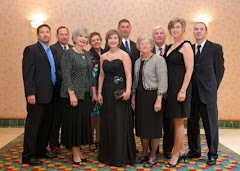I was at a Meredith College dinner and I was sitting next to David Husia, Dean of the Bilingual program at the FuHsing School in Taipeai, Taiwan. We were having a great conversation about global education and various means of assessing student proficiency. Of course our conversation soon became one about standardized testing. For years we have heard about how the U.S. is falling behind and how our students are not performing as well as their counterparts in other parts of the world. I knew David's students went to school far more hours than my students in the United States. Many of my former summer students from FuHsing have talked about the hours they spend on school work and the limited time they have to explore new hobbies. Over the past two years, I formed the opinion that this test combined with an array of other standardized high school assessments was the primary focus for both students and teachers. I was surprised (but very excited) when David said to me "I get so frustrated. The real world will expect our students to do more than color circles." How true! We talked about the true value of assessment and accountability, but we shared the same frustration that so many of our teachers (both in Taiwan and NC) spend more time teaching "the test" than teaching the thinking skills that will help students pass the test AND be successful in venues beyond high school. As our conversation continued, I was (I guess) amazed at how similar our view of true student learning was. Don't get me wrong, I realize there is a value in accountability and that measuring student performance in vital. Rick DuFour says it best, "What gets measured gets done." But what if we decided to teach our students to think, analyze and problem solve first? David and I began to talk about the challenges of moving our colleagues away from teaching to the test and toward our role as facilitators. Think about how much better our students would perform in the long run if teachers became facilitators of learning rather than dispensers of fact. Are we really teaching what's important? Although our students can carefully select the answer and make a dark mark that completely fills the circle, will they be thoughtful and productive citizens?
I was talking with an administrator from another state. We seemed to have the same conversation that David and I had. She was sharing a story about being seated next to a businessman on plane. When he discovered that she was in public education, he expressed his frustration. He said that we were not graduating students with the necessary skills to function in the real world. He wants to hire problem solvers, analyzers, and independent thinkers. Again I ask, are we teaching what is important?
At this point I realize I have evoked either an "Amen" or an "Oh-me" from you! Is assessment important? Absolutely! Is a data-driven classroom a necessity? Absolutely! Is teaching fact with no rigor or relevance going to make citizens of whom we can be proud? Absolutely NOT! Can we be facilitators of student learning while continuing to see improvement in our standardized test scores? Absolutely! As we prepare to begin the new school year, I challenge you to create a classroom that embraces true student learning!
Tuesday, August 3, 2010
Subscribe to:
Post Comments (Atom)




No comments:
Post a Comment